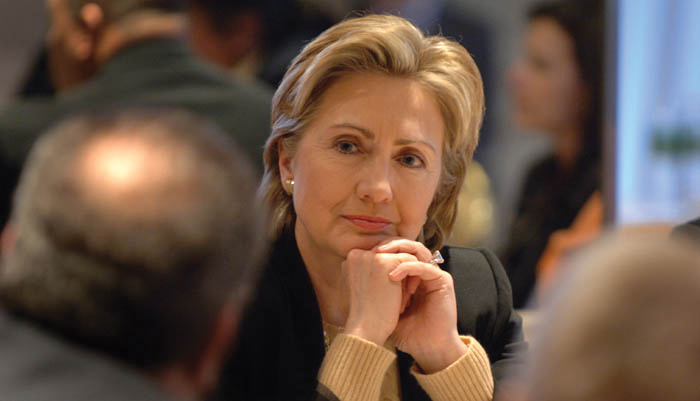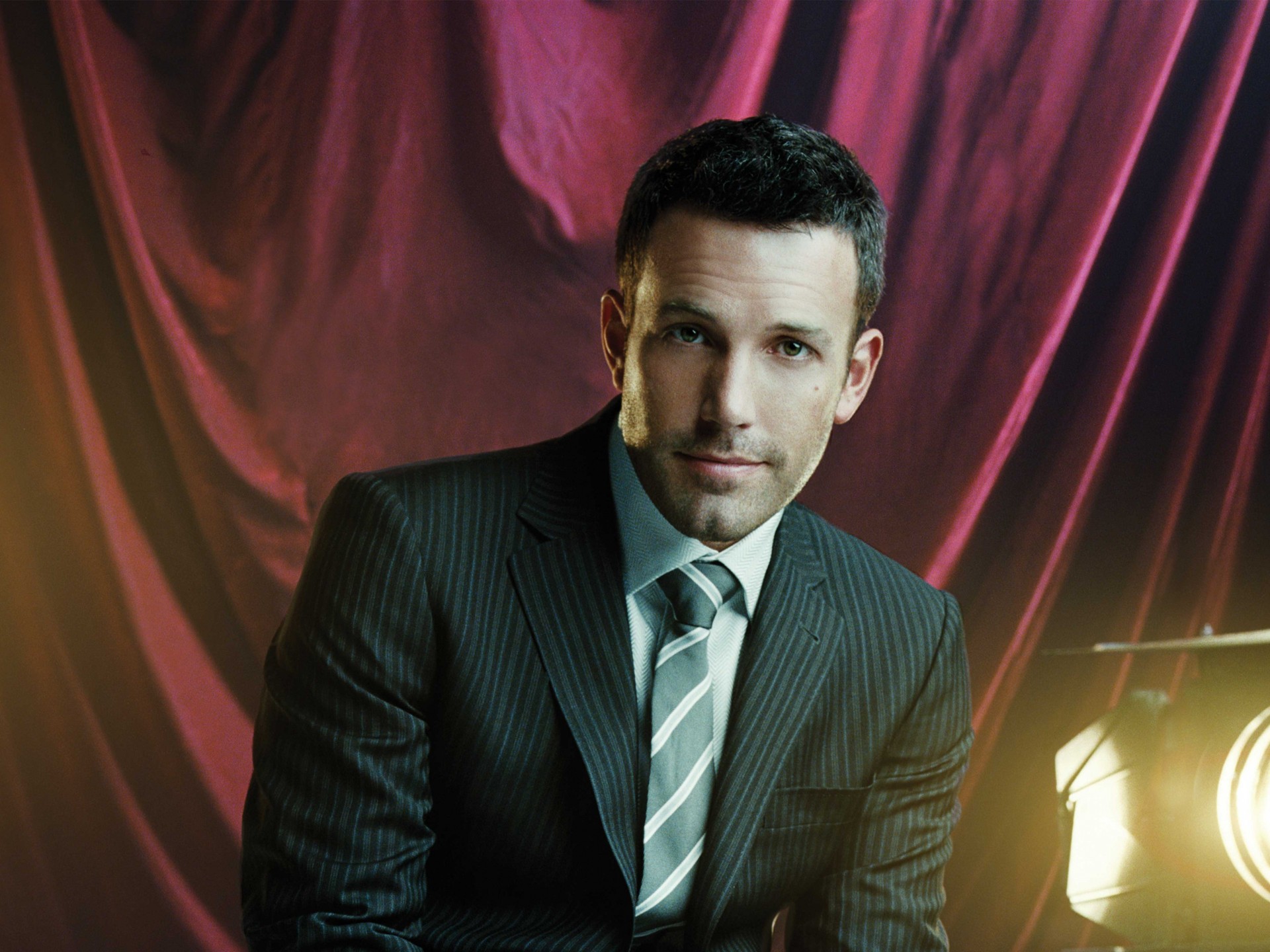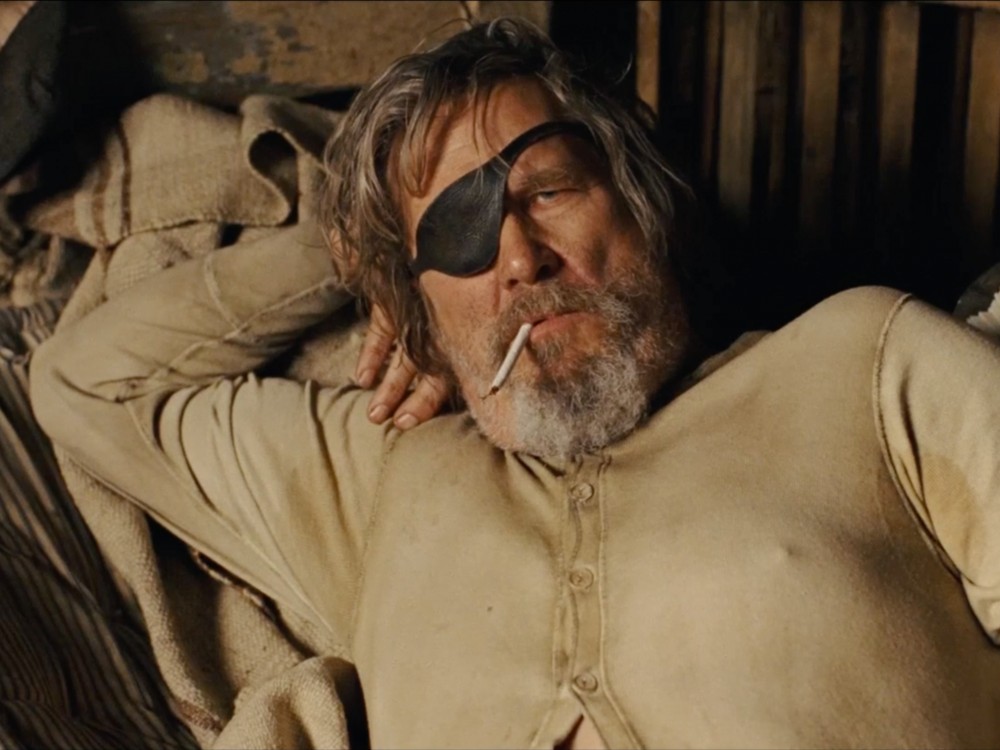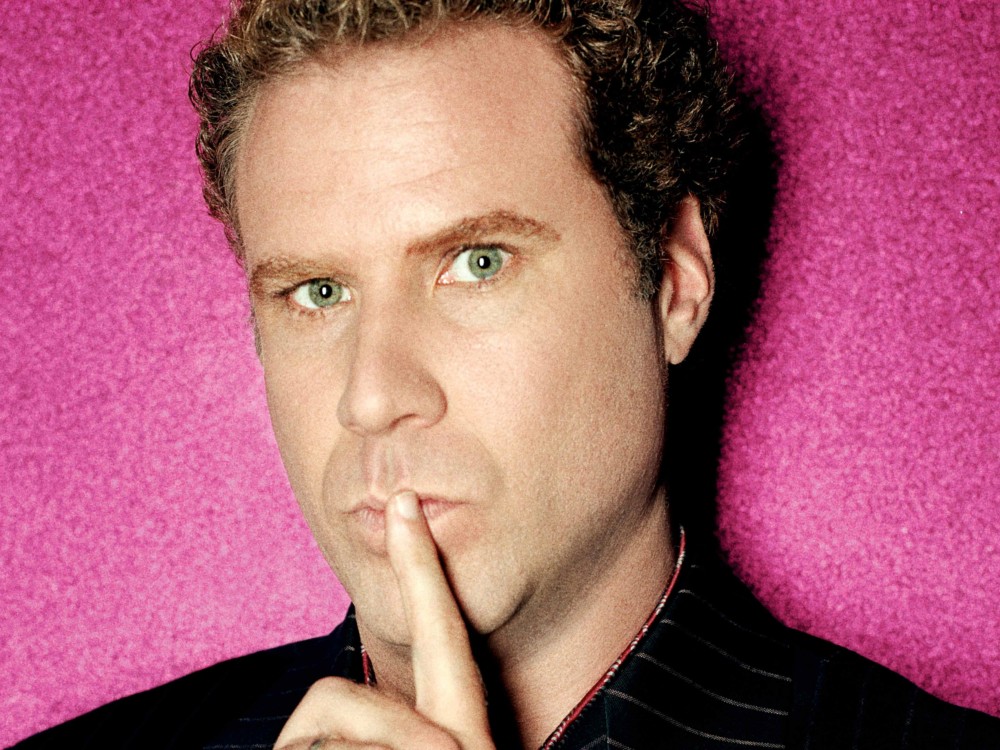
Sir Edmund Hillary was the first man to reach the top of Mount Everest, the highest peak in the world. Does another Hillary — Clinton, that is — have what it takes to become the first woman to reach the highest office in the United States? One of the more politically astute people in Hollywood, Ben Affleck, poses some questions in an effort to find out.
Senator Hillary Clinton: How are you?
Ben Affleck: Good. How are you doing?
Clinton: Well, I’m doing great! I just wanted to congratulate you again on your beautiful baby.
Affleck: Thank you so much. That’s so nice of you to say.
Clinton: It’s the best thing in the world, isn’t it?
Affleck: It is. It really is the best thing in the whole world. It changes everything, as you well know. I’m very lucky.
Clinton: Well, I’ve been talking a lot in my campaign about [how] the Masai [in Africa], when they meet each other on a trail as they’re herding their livestock, instead of saying, “How are you?” they say, “How are the children?” It’s one of my favorite stories, and I talk a lot about it on the campaign because I say, “Look, every election is about the future, and the future is about our kids, and whether we are going to give them the kind of country that they deserve to have is really the question of this election.” Anyway, congratulations. Welcome to fatherhood and all that good stuff.
Affleck: [Laughs] Thank you very much. I’ve never interviewed anyone before, and to get a chance to interview someone who’s going to be the next president is really starting your career… I don’t know where my career as an interviewer goes from here.
Clinton: [Laughs] Well, I’ve seen you on some of those interview shows. You’re pretty good, Ben. You know, if you ever got it in your mind to do that, you’d wipe up.
Affleck: [Laughs] I’ve got to retire from here. I was trying to write my questions, and you should like my questions because they’re so long that really you have three seconds to talk. I can’t get the preambles down.
Clinton: Oh, I know. But there’s a lot to talk about. This is an important election
Affleck: Before I dropped out of college, I majored in Middle Eastern studies, so a lot of this stuff is [about] foreign affairs.
Clinton: Good.
Affleck: I’m going to Tanzania with [the One Campaign volunteers], so I wanted to start by asking what your plans are to address extreme poverty and AIDS in Africa. Some people feel that that’s a national security issue.
Clinton: I’m such a strong supporter of the One campaign, and I see the representatives of it in every crowd that I speak to. And I’m thrilled because we’ve got to do more to raise the visibility of these issues. I have a five-point plan about what I think we need to do to deal with extreme poverty in Africa and elsewhere, but with particular focus on Africa.
First, I have legislation that I’ve introduced for the last several years — and it’s now bipartisan, thank goodness — for the United States to lead the world in helping children go to school. It’s called the Education for All Act, and the One campaign has endorsed it. Because if we don’t support countries in doing away with school fees and providing teacher training and curriculum materials, we’re never going to break the cycle of illiteracy and ignorance.
Number two: We’ve got to have a more efficient healthcare delivery system in order to deal with HIV, AIDS, malaria [and] tuberculosis. There’s good work going on. I’m very proud of the work that my husband’s foundation is doing through the Clinton Foundation HIV/AIDS Initiative. And I give the president credit for working to get us at least on the boards when it comes to PETFAR [President’s Emergency Plan for AIDS Relief], and what we need to be doing as a nation. But the real problem is we don’t yet have effective health-delivery systems, which is why I want to support work like [physician and Partners in Health founder] Paul Farmer is doing in Rwanda, and that governments like Botswana are doing, and what Bill [Clinton] is doing in Lesotho and other places. So that it’s not just [that] we get the lower prices for the drugs, or for the mosquito netting, but we work with these governments to set up systems that are going to continue when we go and to give people a better option to have access to healthcare.
Number three: We’ve really got to do as much as we can to get the level of violence and conflict to decrease. That’s why, for a long time, I’ve been calling for a no-fly zone in Sudan. And there’re other actions that I would take in working with the governments in Congo and Nigeria to deal with some of their internal conflicts. And if we don’t show that we’re willing to support the African Union and peacekeeping, whether it’s through the U.N. or NATO, people are not going to make investments and, at the end of the day, some kind of investment strategy is essential if you’re going to help the African economies begin to put people to work.
Fourthly, I would say we’ve got to do more to support the good leaders who now exist in Africa on a very big level. I’m a huge supporter of the president of Liberia. Ellen Johnson-Sirleaf has taken a big jump of faith in trying to get that country pulled out of the chaos that she found it in.
Affleck: Yeah, they’ve come a long way.
Clinton: They’ve come a long way. But if we’re not there, and we’re not getting more donors, and if we’re not sending more technical assistance, it’s impossible for her to get the electricity on, and to get economic opportunity flowing again. I’m really proud. Because Bill runs this thing called the Clinton Global Initiative, and last year a group of African-American business leaders who were very persuaded by her presentation pulled together about $30 million to help her do what needed doing. Well, we need to make that a real effort.
Finally, we’ve got to work on the trade-aid equation, because at the end of the day we’ve got to get these economies more supporting and more producing, and it’s very hard for them to do that if they don’t get a lot of good breaks from the developing world. So there’s a lot that I want to do in order to deal with extreme poverty.
Affleck: Others have suggested that President Bush conflated al-Qaida in Iraq with the al-Qaida of Osama bin Laden and Ayman al-Zawahiri. Do you agree, or do you think they’re one and the same, and we should regard them as such?
Clinton: This is a classic case of misdirection by the Bush administration. It certainly was not the case. There was no active presence in any organized way in Iraq of al-Qaida. Suddam Hussein saw al-Qaida — and bin Laden, in par- ticular — as a real competitor. Now there is an al-Qaida presence. The al- Qaida in Iraq [is] independent, but it’s linked with bin Laden. So we’ve got to take it seriously now, but it’s really misleading for President Bush to act as though it was there before, and we’re just dealing with what it was, when in fact we helped to create it and gave it an opening. I’m encouraged that there seems to be a reaction against al-Qaida in Iraq by some of the Sunni tribal sheiks. They’re now taking action because the al-Qaida in Iraq, foreign fighters and insurgents, took rather bloody and very violent action against the Sunnis, and so we’re beginning to create a coalition against al-Qaida in Iraq. But we wouldn’t have had to do any of this if President Bush hadn’t been so intent upon waging a preemptive war, and then, once he waged it, doing it in such an unfortunate, incompetent manner.
Affleck: Now the president keeps telling us that if the troops withdraw from Iraq, terrorists will follow them home. They tell us there are four million refugees who have been uprooted from Iraq already. It’s not as if the terrorists have a navy that needs a military battle before they can sail for our shores; it’s already possible for a terrorist in Iraq to come here. Is there really an increase in danger of terrorists following us home if we withdraw our troops?
Clinton: That’s another one of the scare tactics that the president uses. We were attacked before we ever went into Iraq. Other countries have been attacked by al-Qaida, or al-Qaida-linked terrorists, in the years since we invaded Iraq. We’re going to be living with the threat of global terrorism, and we’ve got to get smart about how we deal with it. That’s why I’ve outlined a very specific three-step plan I would pursue as president to end the war, and it starts with bringing our troops home as quickly as it’s responsible to do so. Because we’ve got to put the Iraqi government on notice that we’re not going to be there to protect and defend them unless they are willing to take action on behalf of themselves, which thus far they’ve been reluctant to do. So I just fundamentally disagree with President Bush’s analysis and his continuing beating of the drum of fear as the substitute for reason and understanding of the very difficult options we face.
The people of Iran rallied on behalf of the United States nearly a million strong in the square in Tehran after 9-11. The Bush administration decided to lump Iran with Iraq and North Korea in a made-up ‘axis of evil’ for political purposes, and then turned around and outsourced any diplomatic process to the British, the French and the Germans. And we’re paying a big price for it. What I would do is certainly toughen sanctions on Iran because we don’t want them to obtain nuclear clear weapons if we can prevent it from happening but I would also be engaged in a diplomatic process at low levels to begin to figure out if there are any potential areas of cooperation, and try to enlist the world – convince Russia, China and others that they need to stand with us to prevent Iran from becoming a nuclear power.
Affleck: Senator, if you’ll permit me to state the obvious briefly — sometimes the Bush administration demands it — if you parse the president’s phrase “war on terror,” it literally makes no sense. Terrorism is not an enemy; it’s a tactic of warfare. Enemies are people or organizations. It’s like waging a war on jealousy or ambushes. When the Democrats use the president’s Orwellian political phrases, aren’t they helping the Republicans frame the issues to their advantage? And therefore shouldn’t we all try to stop using this language?
Clinton: That’s a good point, Ben. Really, it’s a long-term struggle against forces that use terror as a tactic to intimidate and disrupt societies that they could never take over by any direct military action, and to gain support and adherence around the world to a philosophy and an attitude against modernity, and women’s roles and many other aspects of life today. The shorthand that is used is one that is certainly not very analytic, but I understand how it’s gotten into the parlance because the country was shocked as a result of the attacks of 9/11, and trying to find a language for something that had never happened to us before. And it’s unfortunate that the president we had at the time was willing to take advantage of the legitimate concerns and questions that the American people had, and to use fear as a tactic for political gain. So there can be a transition away from that. What I’m trying to do is say, “Yes, we have a real struggle against people who use terror. We have —”
Affleck: But isn’t that the war against al-Qaida?
Clinton: It is against extremist Islamic militants who are ruefully confederated. It’s not all under the umbrella of al-Qaida. There are other elements of it, from Morocco to Indonesia; there are a lot of copycats. And we’ve made a mistake in not being more careful in describing what the threat was because we also don’t want to lump everybody who lives in a Muslim country, or who is Islamic, into the same category either. Sometimes President Bush’s or Vice President Cheney’s language ripples in that direction. We’ve got to be smart in saying, “Yes, there is a real threat.” It would be the opposite mistake of Democrats to downplay the threat because we know that they have launched attacks against Great Britain, Spain, Morocco and India, and you name it. So we don’t want to act like it’s not a real threat, because obviously it is.
On the other hand, what I’ve been saying is that this is not a threat that you can destroy or eliminate by military means alone. And that has been the whole strategy of the Bush administration. We need to have more friends and allies working with us, and law enforcement, intelligence. We need cultural, economic [and] political outreach. We need to give people in the Islamic world an alternative explanation about how we can work together. So there is a lot that a change in leadership could actually improve. I want the Democrats to say, “Yes, there’s a real threat, and we’re going to deal with it, and we’re going to be stronger at home than the Republicans have been because they haven’t handled homeland security very well, and we’re not going to rely just on the strength of our military to meet what is essentially an ideological struggle, which uses terror as a tactic.”
Affleck: I read [an] interview with [President] Carter’s former National Security Advisor [Zbigniew] Brzezinski where he said that we got the Russians into the war in Afghanistan, and then ultimately that war destroyed that country, and then we left. We left it to warlords, and ruin, and ultimately the Taliban, and we didn’t stay and help be involved in that country. Of course there are many who want a fast exit from Iraq. But does history teach us that maybe this time we should stay in Afghanistan for the long haul and be part of the rebuilding effort there?
Clinton: I think so. I believe that we should never have diverted our attention and resources from Afghanistan. And we do have an opportunity to try to support the Karzai government, to try to build a strong national army and police force that can withstand the continuing incursions by the Taliban and al-Qaida. We’ve got to continue to work with [President Pervez] Musharraf, or whoever succeeds him in Pakistan, because the prospect of Pakistan falling under Islamic leadership and [becoming] a potentially Islamic state with access to a nuclear weapon is incredibly frightening for the entire region and the world. So we should have a long-term commitment — and again, we have to be smart about how we do it. There’s a lot that we’ve done right, but a lot things we haven’t handled well. As president, I would take a hard look at what we needed to do going forward, so that our presence in Afghanistan could help secure stability for the people of that country.
Affleck: A lot of people are nervous about the prospect of what they see as the growing power of Iran. There are other folks who sense a kind of similarity between what they’re starting to hear about the threat posed to us by Iran, and what they heard about the threat posed to us by Iraq in 2002. What can you tell people about your perspective on Iran right now?
Clinton: Well, I believe that the administration has badly mishandled the relations with Iran. We should have been engaged in a diplomatic process with Iran from the moment we were attacked on 9/11 because, remember, the two major enemies that Iran had were the Taliban and al-Qaida on the one hand in Afghanistan, and Saddam Hussein in Iraq. And we could have tested the limits of any relationship. The people of Iran rallied on behalf of the United States nearly a million strong in the square in Tehran after 9/11. And basically the Bush administration decided to lump Iran with Iraq and North Korea in a made-up “axis of evil” for political purposes, and then turned around and outsourced any diplomatic process to the British, the French and the Germans. And we’re paying a big price for it. What I would do is certainly toughen sanctions on Iran because we don’t want them to obtain nuclear weapons if we can prevent it from happening, but I would also be engaged in a diplomatic process at low levels to begin to test and figure out if there are any potential areas of cooperation, and to try to enlist the world — convince Russia, China and others that they need to stand with us to prevent Iran from becoming a nuclear power. And I just don’t see the [Bush] administration really making that a focus of its policy or having the strategy to pursue it if it were.
Affleck: So people should not feel worried that we’re on a dangerous course with Iran?
Clinton: You never know with the president and the vice president. That’s why I went to the floor of the Senate some months ago and said that they should not believe they have any authority to do any military action against Iran, because they do not. I wanted to put them on notice that I thought that if they started to beat the drums, people had to call them to account.



